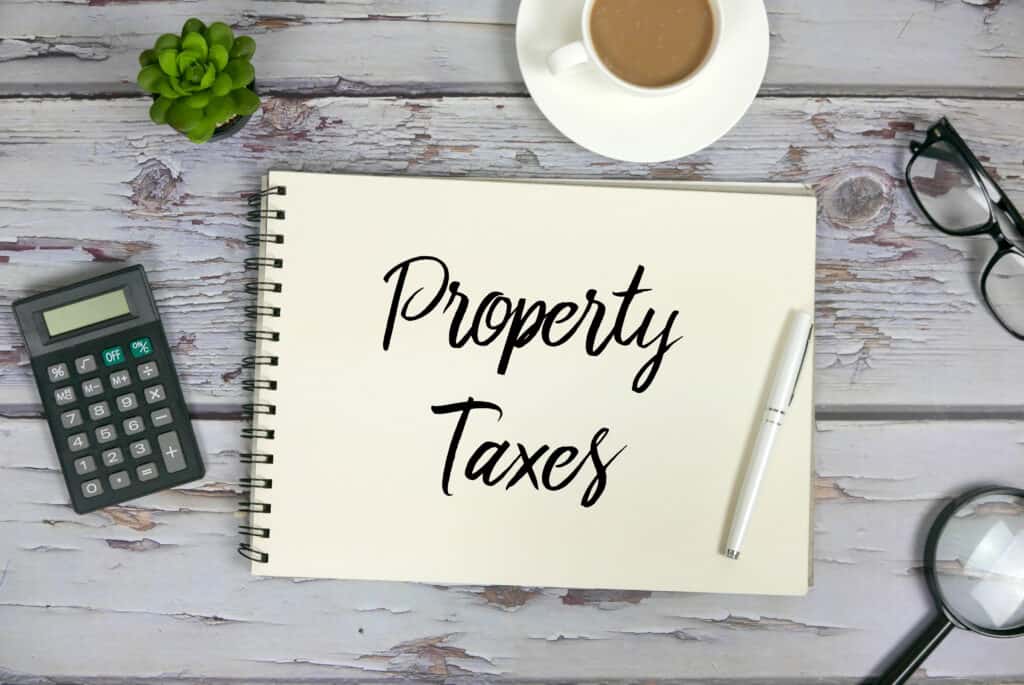Everything You Should Know About Property Taxes
When you’re preparing to become a homeowner, there are some things you might not think about as far as the costs of maintaining a home. One of those is property taxes. Property taxes are easy to overlook when you’re calculating your true bottom line.
Local governments use property taxes to cover public services in the community. Property tax revenue goes towards schools, roads, and police and fire departments primarily.
If you own property, you have to pay property taxes. That includes rental properties and property you might have inherited, as well as vacant land.
How Are Property Taxes Calculated?
Your property taxes are calculated based on the tax rate set by your local government and then your property’s assessed value. You use the assessed value of your home and multiply it by your tax rate, and that’s your owed property tax.
What Is Assessed Value?
The assessed value is a term that can bring confusion for some people.
Assessed value is not how much you can sell your house for, nor is it what you bought it for. Terms for those are market or appraised value.
The assessed value of a home or property is set by a property assessor in the local government.
It tends to be lower than market value, which is good because then you pay less on your property taxes.
What is the Property Tax Rate?
Your property tax rate depends on where you live. States with the highest average property tax rates include New Jersey, Illinois and Vermont. The lowest property tax rates are in Hawaii, Alabama, and Colorado.
The typical home in Massachusetts is worth just over $400,000, the third highest median home value among states. Additionally, the effective property tax rate of 1.15% is also slightly above the national average.
What to Think About When You’re Buying a New House
If you’re searching for a new home, property taxes could be the last thing on your priority list. However, when you have to pay your first mortgage payment they could seem a lot more relevant.
You need to think about what your monthly mortgage payment will be, including your property taxes.
Most financial advisors say that your mortgage payment with your property taxes included should be no more than 25% of your take-home pay. If your property taxes would push you over that when included with your mortgage payment, maybe you should reconsider the house you’re looking at or even the city or town.
For example, you could go to a different town and move from a 2% to a 1% property tax rate, which is a big difference.
How Do You Pay Property Taxes?
Most people’s mortgage payment includes their property tax as well as their homeowner’s insurance.
That’s preferable for the vast majority of homeowners because the bill is spread out over 12 months, rather than having a big bill coming due at the end of the year.
A lender will usually put the money in a separate account, which is an escrow account. Then, they’ll pay the property taxes that are due.
Property taxes are estimated throughout the year, so you could have a refund, or you could end up owing more.
Even if your house is paid for, you still have to pay property taxes, and rather than the lender paying them, it’s up to you.
If you don’t pay your property taxes or get behind, you could lose your home.
If you don’t pay your property taxes on time, penalties vary depending on where you live, but in addition to the risk of foreclosure, you may have to pay hefty penalties.
Finally, when you buy a home, you may be eligible for some other tax breaks related to your property taxes. For example, you can deduct what you pay in property taxes when you file your federal income tax return, as long as you’ve paid by the deadline.
Property taxes aren’t fun to think about, but they are a big part of the puzzle when it comes to deciding where you live and how much house you can afford.

